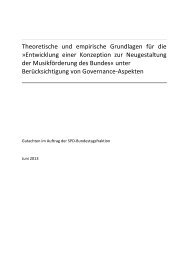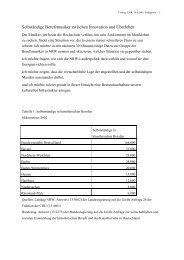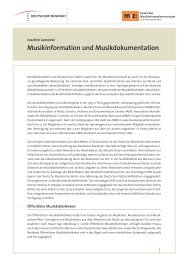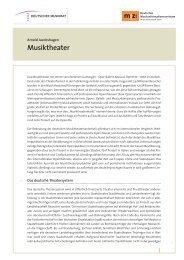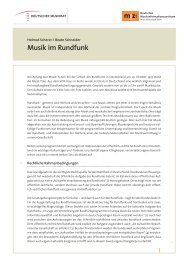You also want an ePaper? Increase the reach of your titles
YUMPU automatically turns print PDFs into web optimized ePapers that Google loves.
The government of France was an<br />
early champion of graduated response<br />
legislation, understanding it as an effective<br />
way to protect the creativity of French<br />
artists and local culture.<br />
France’s legislation was<br />
enacted in October,<br />
establishing a new<br />
administrative authority<br />
(HADOPI) that will<br />
require ISPs to send<br />
warning notices to online<br />
copyright infringers.<br />
After a second warning,<br />
HADOPI will transfer the<br />
files of repeat infringers<br />
to the criminal courts,<br />
where a judge will be<br />
empowered to order the<br />
suspension of infringers’<br />
internet access for up<br />
to one year, as well as<br />
to impose a full range of<br />
criminal penalties.<br />
The graduated response<br />
system is expected to<br />
start functioning in early<br />
<strong>2010</strong>, as soon as some<br />
implementing decrees<br />
have been adopted.<br />
Given the development in a number<br />
of EU Member States of legislation to<br />
tackle file-sharing and other forms of<br />
piracy, the European Commission is<br />
considering whether to table framework<br />
laws in order to provide guidance to the<br />
member states. One option would be<br />
for the Commission to come forward in<br />
<strong>2010</strong> with proposals to strengthen the<br />
EU Enforcement Directive.<br />
In Asia, South Korea and Taiwan<br />
have passed legislation establishing<br />
graduated response processes for<br />
repeat infringement that can culminate<br />
in account termination.<br />
Legislation to tackle online copyright<br />
infringement was also announced in<br />
November in the UK, following the<br />
government’s <strong>Digital</strong> Britain consultation.<br />
The proposal establishes a graduated<br />
response leading to possible sanctions<br />
that could include suspension of repeat<br />
infringers’ accounts. ISPs would notify<br />
subscribers whose accounts have been<br />
reported to be infringing, and keep<br />
records on an anonymous basis.<br />
The government could then oblige<br />
ISPs to implement technical measures<br />
or temporary account suspension for<br />
Industry Action On Pre-Release Piracy<br />
While ISP cooperation offers a potential solution to massscale<br />
peer to peer (P2P) digital piracy the music industry<br />
is extremely active in tackling the separate and highly<br />
damaging problem of pre-release piracy. Pre-release tracks<br />
and albums leak days or weeks before official release.<br />
<strong>IFPI</strong>’s London-based anti-piracy team works closely with<br />
member music companies both to help prevent leaks<br />
and to limit the proliferation of illegally distributed content<br />
around the world. In 2009 <strong>IFPI</strong>’s internet anti-piracy unit<br />
was merged with the organisation’s physical/forensic antipiracy<br />
operations.<br />
Jeremy Banks, <strong>IFPI</strong>’s director of anti-piracy, heads the new<br />
combined team. He says: “Record labels are more aware<br />
than ever that the protective measures they take in the days<br />
around an album’s release are absolutely crucial to whether<br />
the album will realise its full market potential. You can count<br />
the cost in terms of lost returns to artist and record company<br />
from the moment the first copy leaks out on to the internet.”<br />
25<br />
Graduated Response<br />
repeat infringers. In New Zealand,<br />
the government has concluded its<br />
consultation on legislation to introduce<br />
graduated response and is expected to<br />
present a bill to Parliament early in <strong>2010</strong>.<br />
A different path to graduated<br />
response has been taken in Ireland.<br />
The country’s largest ISP, Eircom,<br />
agreed to introduce such a system<br />
in a settlement with the local<br />
recording industry.<br />
There are government sponsored<br />
discussions taking place between<br />
ISPs and content industries in many<br />
countries. In Germany, the Ministry<br />
of Economy is sponsoring meetings<br />
to include discussions on graduated<br />
response, new business models and<br />
education. Other countries involved in<br />
similar discussions include Australia,<br />
Brazil, Hong Kong and Japan –<br />
all of which are closely monitoring<br />
developments elsewhere.<br />
In some countries, notably the US,<br />
private deals have been struck<br />
between some individual rights<br />
holders and ISPs that incorporate a<br />
commitment by the ISP to put in place<br />
a system of graduated response. n<br />
<strong>IFPI</strong>’s anti-piracy team tracks leaks of tracks and<br />
albums released throughout the world. It searches<br />
blogs, forums and websites as well as P2P networks<br />
and also works with legitimate online services,<br />
such as YouTube, to ensure copyright infringing<br />
content is removed. The number of infringing links<br />
removed by <strong>IFPI</strong> rose from three million in 2008 to<br />
more than five million in 2009. This online focus<br />
is complemented by continuing work to tackle<br />
commercial physical music piracy, which is<br />
sometimes linked to online infringement.<br />
One of the most high-profile pre-release leaks of 2009<br />
was the posting of Leona Lewis tracks online following<br />
a ‘hack’ of an internet account at her record company.<br />
Simon Cowell, the managing director of Syco Records,<br />
called in the police and industry investigators who<br />
traced the origins of the ‘hack’ and the leak to sources<br />
in North America and Europe. n




